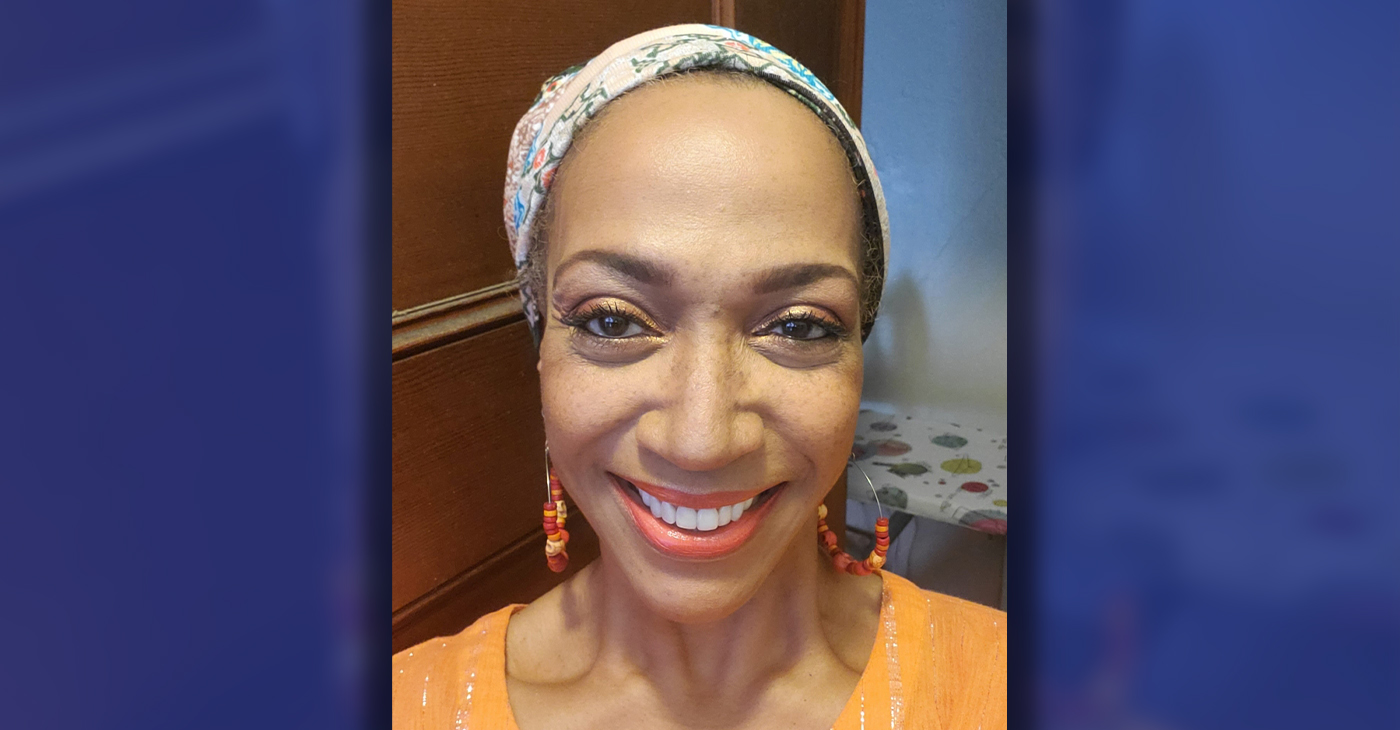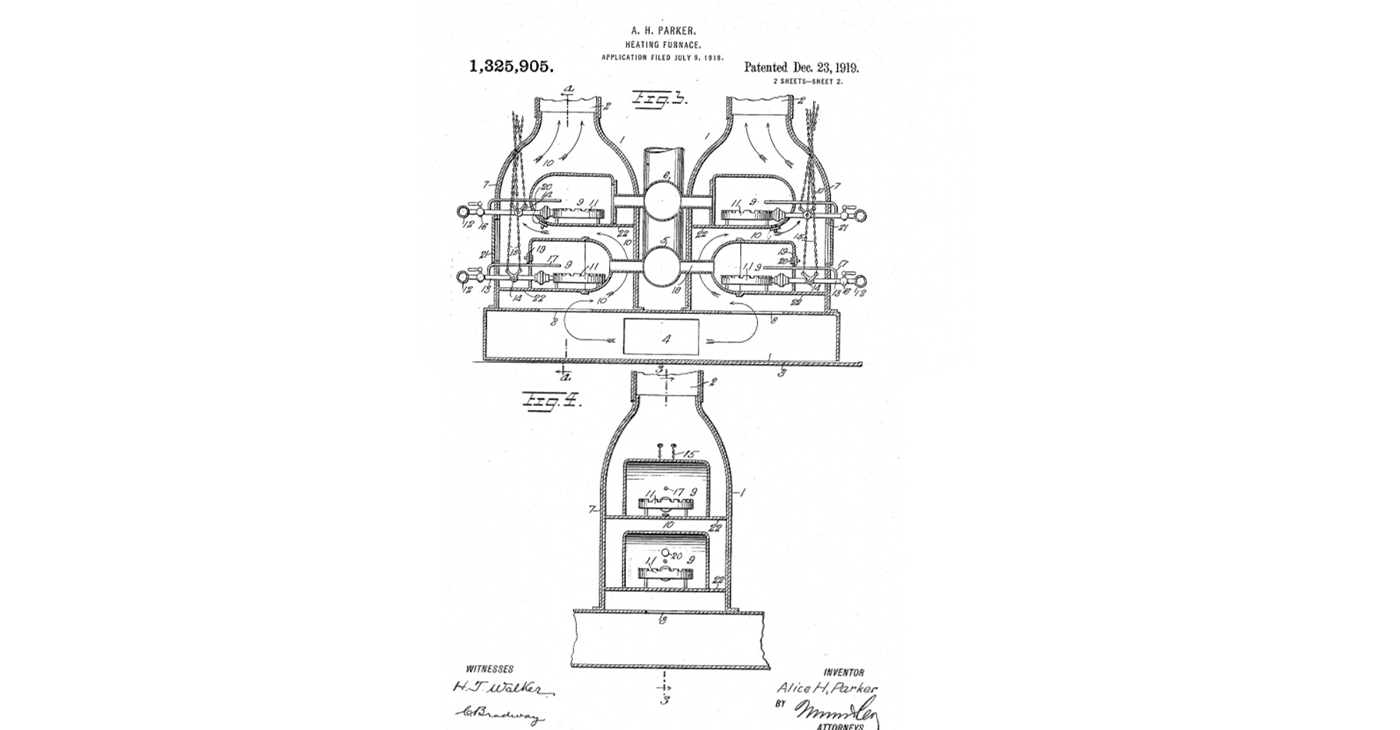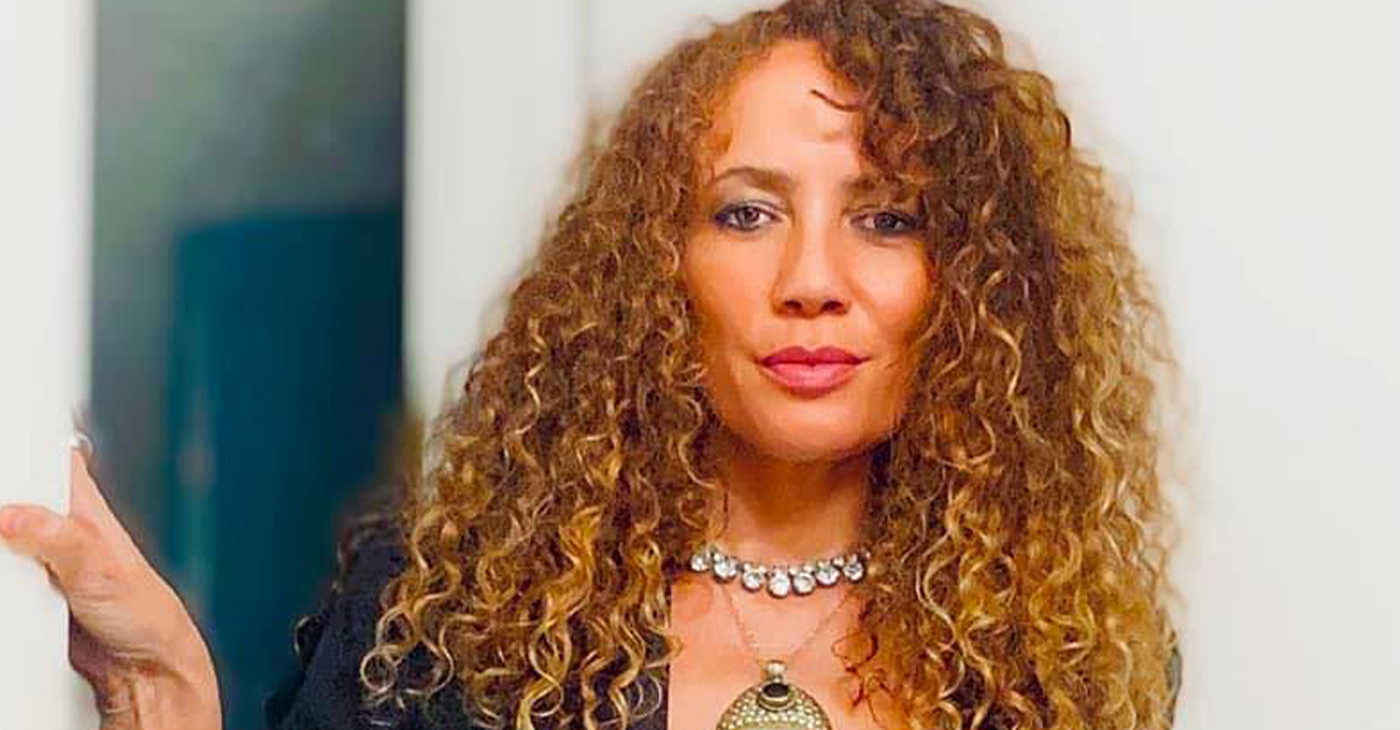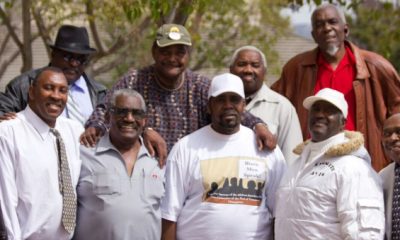Business
Closing Education Gap Would Boost U.S. Economy

Attorney General Loretta Lynch speaking at NAACP convention in Philadelphia
(Photo by Abdul Sulayman/Philadelphia Tribune)
By Freddie Allen
NNPA Senior Washington Correspondent
WASHINGTON (NNPA) – Men of color would earn $170 billion more a year, if they reached the same education level as White men, according to a new White House report.
The report examined “opportunity gaps facing youth of color” and found stunning correlations between the educational and employment success of young men of color and how that success can directly impact the national economy.
Not only would closing the education attainment gap result in higher annual earnings for men of color 25-64 years-old, it would also increase the gross domestic product, the value of the production of goods and services, by 1.8 percent in the United States. The Bureau of Economic Analysis reported that GDP decreased by an annual rate of 0.2 percent in the first quarter of 2015.
The high school graduation rate for Black students is 17 percentage points lower than their White classmates and only “28 percent of Blacks have a college degree by their late 20s, compared to nearly half of White men,” the report said.
The report said that youth of color encounter a number of barriers to opportunity at higher rates compared to their White peers.
“For example, while 20 percent of all children under age 18 live in poverty, 38 percent of Black children and 30 percent of Hispanic children live in poverty, compared to 11 percent of non-Hispanic White children,” stated the report.
Poor students often don’t have access to early childhood education, increasing the likelihood that they will start school at considerable disadvantage to their more affluent peers. When young students fall behind in their reading skills, it makes it harder for them to catch up to their peers in later grades and increases the chances that they will drop out.
When young Black men disconnect from school, they are more likely to connect to the criminal justice system at considerable expense to the rest of society.
“The cost of incarceration is far substantially higher than investing in education or other programs to increase opportunity, even before one takes the returns to the investments into account,” the report said. “The cost of incarceration for a single juvenile is over $100,000 – twice as high as tuition at the most expensive college in the country or a year of intensive mentoring.”
And even though crime is down in recent years, spending on corrections at the federal, state and local level is $80 billion, according to President Obama.
A history poverty, lack of access to early childhood education and early interaction with the criminal justice system can follow a young Black man deep into adulthood and contribute to an early death or a lifetime of missed employment opportunities and lower rates of employment compared to White men.
“Even when there is little difference in the likelihood of committing a crime, individuals of color are much more likely to be arrested,” stated the report. “For example, a black individual is nearly four times as likely as a white individual to be arrested for marijuana possession, even though black and white individuals reported using marijuana at similar rates in 2010.”
The report continued: “In 1984, the majority of State and Federal prisoners were White. In 2011, the majority of the more than 1.5 million prisoners were minorities, including 930,000 prisoners who were Black or Hispanic (61 percent).”
“Among adults 16 and older, Black men are nearly 15 percentage points less likely to be employed than White men,” stated the report.
And because the labor force participation rate only tracks people who are either employed or looking for work, more than 1 million Black men languishing in American prisons remain unaccounted for in the labor market artificially narrowing the employment chasm between Blacks and Whites until they return home.
“The relationship between economic opportunity and crime is not wholly clear-cut. For instance, crime fell throughout the most recent recession. Nevertheless, experience of past decades suggests that improving economic opportunity can also help lower crime rates,” the report said.
The report noted that the Chicago-based Becoming a Man (BAM) program has achieved success at steering disadvantaged young men away from the criminal justice system by taking a different approach
Rather than offering targeted job opportunities, the report said that BAM, which primarily serves young Black and Latino men, teaches their members how to make better decisions “in high-stress situations through in-school sessions focused on making participants more aware of their automatic responses and on thinking about the appropriate response to the situation at hand.”
BAM not only reduced violent crime arrests among program participants from 2009-2010, the young men also got better grades. An evaluation of the program during the 2013-2014 school year showed a 31 percent decline in the likelihood of arrests for BAM members.
The White House report said that scholarships and one-on-one coaching can also help low-income students graduate from college.
The high costs of mass incarceration, coupled with the increased awareness about the militarization of local police forces and the controversial practices of the for-profit prison industry have driven lawmakers to reconsider tough on crime policies in favor of smarter sentencing guideline, restorative justice and community-based rehabilitation programs.
During her keynote address at the NAACP’s annual convention in Philadelphia, United States Attorney General Loretta Lynch noted the launch of the Smart on Crime initiative and it’s impact on mandatory minimum sentencing and investments in rehabilitation and reentry programs.
“The early results of these efforts have been extremely promising,” said Lynch. “I am not just hopeful, but excited about where these reforms will lead us in the years to come.”
Making the criminal justice system more efficient, more effective and more fair on the federal level will require broader reform efforts bipartisan support in Congress, said Lynch, adding that those efforts have to involve repairing the relationship between young people and law enforcement.
“Ultimately, we need children to see possibilities for themselves beyond the cycle of criminality and incarceration that has too often become a tragic and familiar fact of life,” said Lynch. “America is a land of second chances – but it must also be a land where we give opportunities to young people who haven’t gotten a chance at all.”
Activism
Books for Ghana
We effectively facilitated cross-continent community building! We met the call and provided 400 books for ASC’s students at the call of the Minister of Education. We supported the work of a new African writer whose breakout novel is an action-packed depiction of a young woman steeped in Ghanaian culture who travels to the USA for college, all the while experiencing the twists, turns, and uncertainties that life brings.

By Min. Rauna Thurston, Chief Mpuntuhene Afua Ewusiwa I
My travels to Afrika began in June 2022, on a tour led by Prof. Manu Ampim, Director of the organization Advancing The Research. I was scheduled to become an ordained Minister by Wo’se Community of the Sacred African Way. It was vital that my feet touch the soil of Kemet and my spirit connect with the continent’s people before ordination.
Since 2022, I’ve made six trips to Afrika. During my travels, I became a benefactor to Abeadze State College (ASC) in Abeadze Dominase, Ghana, originally founded by Daasebre Kwebu Ewusi VII, Paramount Chief of Abeadze Traditional Area and now run by the government. The students there were having trouble with English courses, which are mandatory. The Ghanaian Minister of Education endorsed a novel written by 18-year-old female Ghanaian first-time writer, Nhyira Esaaba Essel, titled Black Queen Sceptre. The idea was that if the students had something more interesting to read, it would evoke a passion for reading; this seemed reasonable to me. Offer students something exciting and imaginative, combined with instructors committed to their success and this could work.
The challenge is how to acquire 800 books?!
I was finishing another project for ASC, so my cash was thin and I was devoid of time to apply for annual grants. I sat on my porch in West Oakland, as I often do, when I’m feeling for and connecting to my ancestors. On quiet nights, I reminisce about the neighborhood I grew up in. Across the street from my house was the house that my Godfather, Baba Dr. Wade Nobles and family lived in, which later became The Institute for the Advanced Study of Black Family Life & Culture (IASBFLC). Then, it came to me…ancestors invited me to reach out to The Association of Black Psychologists – Bay Area Chapter (ABPsi-Bay Area)! It was a long shot but worth it!
I was granted an audience with the local ABPsi Board, who ultimately approved funding for the book project with a stipulation that the Board read the book and a request to subsequently offer input as to how the book would be implemented at ASC. In this moment, my memory jet set to my first ABPsi convention around 2002, while working for IASBFLC. Returning to the present, I thought, “They like to think because it feels good, and then, they talk about what to do about what they think about.” I’m doomed.
However, I came to understand why reading the book and offering suggestions for implementation were essential. In short: ABPsi is an organization that operates from the aspirational principles of Ma’at with aims of liberating the Afrikan Mind, empowering the Afrikan character, and enlivening: illuminating the Afrikan spirit. Their request resulted in a rollout of 400 books in a pair-share system. Students checked out books in pairs, thereby reducing our bottom line to half of the original cost because we purchased 50% fewer units. This nuance promoted an environment of Ujima (collective work & responsibility) and traditional Afrikan principles of cooperation and interdependence. The student’s collaborative approach encouraged shared responsibility, not only for the physical book but for each other’s success. This concept was Dr. Lawford Goddard’s, approved by the Board, with Dr. Patricia “Karabo” Nunley at the helm.
We effectively facilitated cross-continent community building! We met the call and provided 400 books for ASC’s students at the call of the Minister of Education. We supported the work of a new African writer whose breakout novel is an action-packed depiction of a young woman steeped in Ghanaian culture who travels to the USA for college, all the while experiencing the twists, turns, and uncertainties that life brings. (A collectible novel for all ages). A proposed future phase of this collaborative project is for ASC students to exchange reflective essays on Black Queen Sceptre with ABPsi Bay Area members.
We got into good trouble. To order Black Queen Sceptre, email esselewurama14@gmail.com.
I became an ordained Minister upon returning from my initial pilgrimage to Afrika. Who would have imagined that my travels to Afrika would culminate in me becoming a citizen of Sierra Leone and recently being named a Chief Mpuntuhene under Daasebre Kwebu Ewusi VII, Paramount Chief of Abeadze Traditional Area in Ghana, where I envision continued collaborations.
Min. Rauna/Chief Mpuntuhene is a member of ABPsi Bay Area, a healing resource committed to providing the Post Newspaper readership with monthly discussions about critical issues in Black Mental Health, Wealth & Wellness. Readers are welcome to join us at our monthly chapter meetings every 3rd Saturday via Zoom and contact us at bayareaabpsi@gmail.com.
Black History
Alice Parker: The Innovator Behind the Modern Gas Furnace
Born in Morristown, New Jersey, in 1895, Alice Parker lived during a time when women, especially African American women, faced significant social and systemic barriers. Despite these challenges, her contributions to home heating technology have had a lasting impact.

By Tamara Shiloh
Alice Parker was a trailblazing African American inventor whose innovative ideas forever changed how we heat our homes.
Born in Morristown, New Jersey, in 1895, Parker lived during a time when women, especially African American women, faced significant social and systemic barriers. Despite these challenges, her contributions to home heating technology have had a lasting impact.
Parker grew up in New Jersey, where winters could be brutally cold. Although little is documented about her personal life, her education played a crucial role in shaping her inventive spirit. She attended Howard University, a historically Black university in Washington, D.C., where she may have developed her interest in practical solutions to everyday challenges.
Before Parker’s invention, most homes were heated using wood or coal-burning stoves. These methods were labor-intensive, inefficient, and posed fire hazards. Furthermore, they failed to provide even heating throughout a home, leaving many rooms cold while others were uncomfortably warm.
Parker recognized the inefficiency of these heating methods and imagined a solution that would make homes more comfortable and energy-efficient during winter.
In 1919, she patented her design for a gas-powered central heating system, a groundbreaking invention. Her design used natural gas as a fuel source to distribute heat throughout a building, replacing the need for wood or coal. The system allowed for thermostatic control, enabling homeowners to regulate the temperature in their homes efficiently.
What made her invention particularly innovative was its use of ductwork, which channeled warm air to different parts of the house. This concept is a precursor to the modern central heating systems we use today.
While Parker’s design was never fully developed or mass-produced during her lifetime, her idea laid the groundwork for modern central heating systems. Her invention was ahead of its time and highlighted the potential of natural gas as a cleaner, more efficient alternative to traditional heating methods.
Parker’s patent is remarkable not only for its technical innovation but also because it was granted at a time when African Americans and women faced severe limitations in accessing patent protections and recognition for their work. Her success as an inventor during this period is a testament to her ingenuity and determination.
Parker’s legacy lives on in numerous awards and grants – most noticeably in the annual Alice H. Parker Women Leaders in Innovation Award. That distinction is given out by the New Jersey Chamber of Commerce to celebrate outstanding women innovators in Parker’s home state.
The details of Parker’s later years are as sketchy as the ones about her early life. The specific date of her death, along with the cause, are also largely unknown.
Activism
2024 in Review: Seven Questions for Frontline Doulas
California Black Media (CBM) spoke with Frontline Doulas’ co-founder Khefri Riley. She reflected on Frontline’s accomplishments this year and the organization’s goals moving forward.

By Edward Henderson, California Black Media
Frontline Doulas provides African American families non-medical professional perinatal services at no cost.
This includes physical, emotional, informational, psychosocial and advocacy support during the pregnancy, childbirth and postpartum period. Women of all ages — with all forms of insurance — are accepted and encouraged to apply for services.
California Black Media (CBM) spoke with co-founder Khefri Riley. She reflected on Frontline’s accomplishments this year and the organization’s goals moving forward.
Responses have been edited for clarity and length.
Looking back at 2024, what stands out to you as your most important achievement and why?
In 2024, we are humbled to have been awarded the contract for the Los Angeles County Medical Doula Hub, which means that we are charged with creating a hub of connectivity and support for generating training and helping to create the new doula workforce for the medical doula benefit that went live in California on Jan. 1, 2023.
How did your leadership and investments contribute to improving the lives of Black Californians?
We believe that the revolution begins in the womb. What we mean by that is we have the potential and the ability to create intentional generational healing from the moment before a child was conceived, when a child was conceived, during this gestational time, and when a child is born.
And there’s a traditional saying in Indigenous communities that what we do now affects future generations going forward. So, the work that we do with birthing families, in particular Black birthing families, is to create powerful and healthy outcomes for the new generation so that we don’t have to replicate pain, fear, discrimination, or racism.
What frustrated you the most over the last year?
Working in reproductive justice often creates a heavy burden on the organization and the caregivers who deliver the services most needed to the communities. So, oftentimes, we’re advocating for those whose voices are silenced and erased, and you really have to be a warrior to stand strong and firm.
What inspired you the most over the last year?
My great-grandmother. My father was his grandmother’s midwife assistant when he was a young boy. I grew up with their medicine stories — the ways that they healed the community and were present to the community, even amidst Jim Crow.
What is one lesson you learned in 2024 that will inform your decision-making next year?
I find that you have to reach for your highest vision, and you have to stand firm in your value. You have to raise your voice, speak up and demand, and know your intrinsic value.
In a word, what is the biggest challenge Black Californians face?
Amplification. We cannot allow our voices to be silent.
What is the goal you want to achieve most in 2025?
I really would like to see a reduction in infant mortality and maternal mortality within our communities and witness this new birth worker force be supported and integrated into systems. So, that way, we fulfill our goal of healthy, unlimited birth in the Black community and indeed in all birthing communities in Los Angeles and California.
-

 California Black Media4 weeks ago
California Black Media4 weeks agoCalifornia to Offer $43.7 Million in Federal Grants to Combat Hate Crimes
-

 Black History4 weeks ago
Black History4 weeks agoEmeline King: A Trailblazer in the Automotive Industry
-

 California Black Media4 weeks ago
California Black Media4 weeks agoCalifornia Department of Aging Offers Free Resources for Family Caregivers in November
-

 California Black Media4 weeks ago
California Black Media4 weeks agoGov. Newsom Goes to Washington to Advocate for California Priorities
-

 Activism3 weeks ago
Activism3 weeks agoOakland Post: Week of November 27 – December 3, 2024
-

 Activism4 weeks ago
Activism4 weeks agoOCCUR Hosts “Faith Forward” Conference in Oakland
-

 Activism4 weeks ago
Activism4 weeks agoRichmond Seniors Still Having a Ball After 25 Years
-

 Activism2 weeks ago
Activism2 weeks agoButler, Lee Celebrate Passage of Bill to Honor Congresswoman Shirley Chisholm with Congressional Gold Medal























































